Search Images
Browse Content (p. 1332)
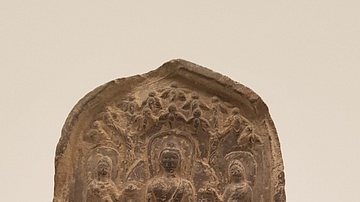
Image
Tang Dynasty Stamped Tablet
Terracotta tablet depicting the Buddha. 13.5 cm (height). Tang Dynasty, 618-907 CE. Transferred from the Xi'an Antiques Shop, 1979. From the Xi'an Museum. (Photo taken at the Art Gallery of NSW, Sydney Australia)
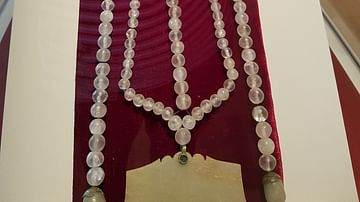
Image
Jade & Crystal Ornament
Jade, gilded bronze and rock crystal jewellery piece. 56 cm (length). Tang Dynasty, 669 CE. Excavated from the tomb of Liu Zhi (civil official), and his consort. Northwest University, Chang'an District, Xi'an. Shaanxi Provincial Institute...
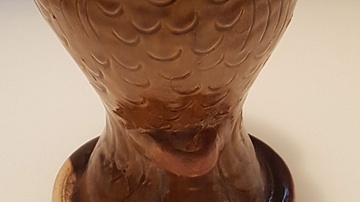
Image
Tang Dynasty Double-Fish Flask
Stoneware double-fish flask with brown glaze. 25 cm (height). Tang Dynasty, 600s-700s CE. Xi'an Museum. (Photo taken at the Art Gallery of NSW, Sydney Australia)
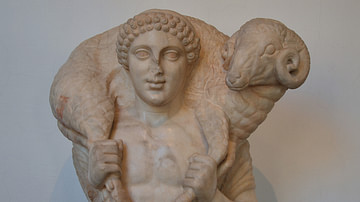
Image
Hermes Kriophoros
Fragmentary statue of Hermes carrying a ram on his shoulders (Kriophoros, the "ram-bearer"). Late Roman marble copy from the 1st century BCE of the Kriophoros of Kalamis (a 5th century BCE sculptor of ancient Greece), found near Rome. (Museo...
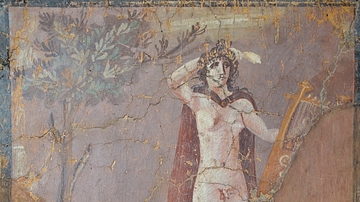
Image
Roman Hermaphrodite Fresco
Fresco fragment depicting a hermaphrodite displaying both male and female anatomy, 2nd half of 3rd century CE, from Capua. (Museo Barracco, Rome)
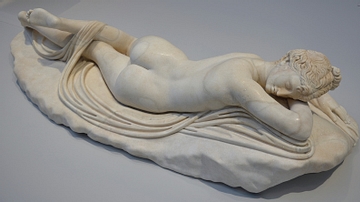
Image
Sleeping Hermaphroditus
Marble sculpture depicting Hermaphroditus, son of Hermes and Aphrodite who became a hermaphrodite after his union with the nymph Salmacis. Roman copy of the 2nd century CE after a Hellenistic original of the 2nd century BCE. (Louvre Lens...
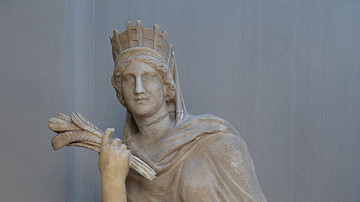
Image
Tyche of Antioch
The Tyche of Antioch, Roman copy after a Greek bronze original of the 3rd century BCE by the sculptor Eutychides of Sikyon. The city of Antioch on the Orontes is identified with Tyche, goddess of fortune and protector of the town. She is...
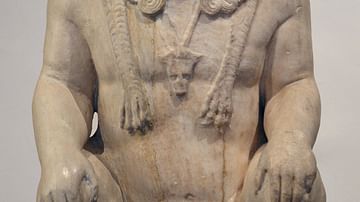
Image
Bes, Museo Barracco
Marble statue of Bes with lion-like ears and mane, 1st century CE, from Rome. Bes was the ancient Egyptian god of childbirth, fertility, sexuality, humour, and war. (Museo Barracco, Rome)
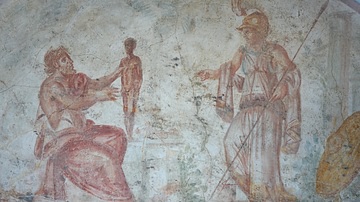
Image
Prometheus Creating Man
Roman fresco depicting Prometheus creating man in the presence of Athena, from the arcosolium of a tomb near the Basilica of St. Paul, 3rd century CE. (Museo della Via Ostiense, Rome)
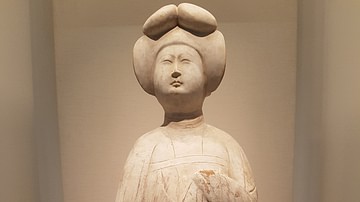
Image
Chinese Female Figurine
712-779 CE. (Head is a reconstruction). Earthenware with pigments. Excavated from Hansenzhai, (eastern suburb of Xi'an), 1988.
From the Xi'an Museum. (Photo taken at the Art Gallery of NSW, Sydney Australia)